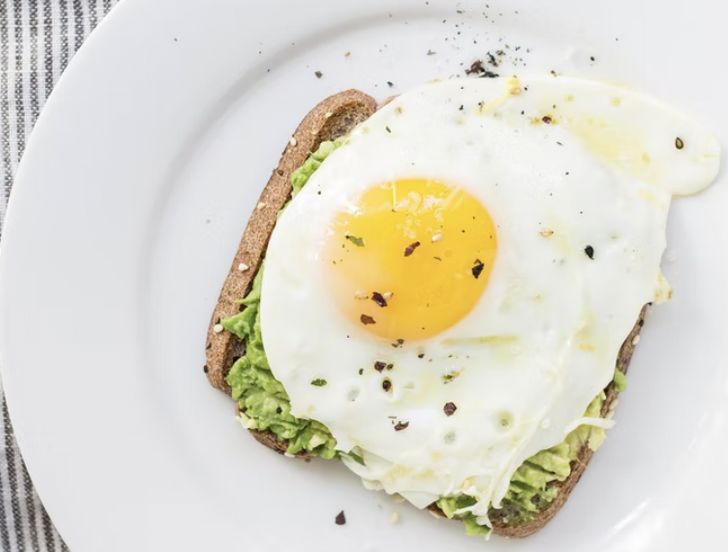
The Role of Protein in a Balanced Diet: How to Lose Weight and Build Muscle
Protein is commonly discussed in main-stream media and is a common nutrition topic for many different reasons. But what is ...
Protein is commonly discussed in main-stream media and is a common nutrition topic for many different reasons. But what is protein and what does it do? Protein is one of our three macronutrients along with carbohydrates and fats. It is found all throughout our bodies and plays many important roles, which we will discuss later on. Proteins are made up of building blocks called amino acids, which are linked in different combinations to use for different functions. Knowing how much protein you should be intaking, and where you can be getting it from, will help your overall health in many ways. Today, we’ll explore how much protein your body needs, how to know if you’re getting enough, and the top sources of protein that we recommend to our clients.
Functions of Protein
Protein aids in many processes all around our body. For example, proteins serve as a structural component for cells and tissues, including muscles. This is why we must increase protein intake when growth is desired. On the other hand, this macronutrient works as enzymes, hormones, and to transport other nutrients in our body to carry out other bodily processes. Lastly, proteins work to maintain our fluid and pH balance, and have a role in our immune system to fight off foreign substances. For most of you, protein is important because it helps you to build lean body mass, stay energized, and lose weight.
How much protein your body needs
The recommended dietary allowance (RDA) for protein is to intake about 0.8 grams for every kilogram of bodyweight, or about 7 grams for every 20 pounds that you weigh. For those who are physically active and do quite a bit of strength training, 1.2 gram of protein per kilogram of bodyweight is needed. Proteins are composed of combinations of amino acids, 20 different ones to be exact. 11 of these amino acids can be made by our bodies, whereas 9 must be consumed through food. We call these essential amino acids. It is necessary to consume adequate amounts of these essential amino acids in order for us to function properly.
Protein recommendations can also change during different life stages. During periods of growth, or if you are trying to gain muscle, protein intake should be increased. Be sure to look at nutrition labels to analyze how many grams of protein are in the food products you are purchasing and consuming.

Consequences of Deficiency
Due to all the major functions that protein has for us, having low protein can lead to a variety of consequences. For instance, low protein can result in reduced muscle mass, causing weakness, fatigue, imbalance, etc. Also, due to its role in the immune system, inadequate protein intake may make it easier for you to get sick, or not be able to recover quickly from illness or injuries. You may also find yourself having mood changes if you were deficient in protein, as we discussed its role in hormones. Some other symptoms to be aware of include swelling, and weak hair and nails.
Sources of protein
So how do we ensure that we are getting enough protein, including the essential amino acids? High-protein foods are most commonly known to be animal products. Similarly, animal products are what we call “complete proteins”, as they contain all 9 essential amino acids. These include meats, poultry, seafood, eggs, and dairy products such as milk, cheese, and yogurts. On the other hand, there are many other protein sources that do not come from animals, such as beans, lentils, peas, and nuts. These however, are not complete proteins, as the only vegan/vegetarian complete protein sources are found in quinoa or soy products like tofu or tempeh. This puts vegetarians and vegans at a heightened risk of protein deficiency, as a combination of multiple protein sources are needed to meet adequate needs. If you are concerned that you are not consuming adequate protein, adding protein powder into foods such as smoothies or oats may help.
Incorporating enough protein in your diet is important to lose weight, increase lean body mass, and reduce body fat. Protein also helps to make sure that you’re feeling energized and that your metabolism is working properly. All of these, in combination, can help you to feel and look your very best!

If you’re looking to boost your metabolism, lose weight without dieting, or feel stronger than ever, our Nourished Nutrition Breakthrough program was designed just for you. In this 3-phased approach, we focus in on mindset, mindfulness, and metabolism so that you can transform your health for good.
In this program, we’ll create an individualized plan just for you so you can have full clarity in what, how much, and when to eat. You’ll feel more confident than ever, and never second guess your eating habits or feel stuck again.

